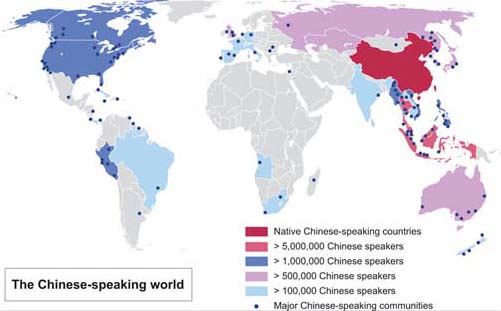1 The Chinese language
The Chinese language, in its various forms, is spoken by the Han Chinese and is known in China as 汉语 hàn yŭ (literally, Han language). The Han Chinese constitutes about 94 percent of China’s population. About 70 percent of the Han people speak Mandarin Chinese; the remaining 30 percent speak other related Chinese languages or dialects. Speakers of non-Chinese languages (e.g. Mongolian, Tibetan) make up about 6 percent of China’s population.
Mandarin Chinese is the official language of the People’s Republic of China and Taiwan, and one of the official languages of Singapore. It is also one of the six official languages of the United Nations. Mandarin and other forms of Chinese are spoken by many expatriate Chinese communities, both in Southeast Asia and overseas. The map below shows how the Chinese language has spread around the world.

